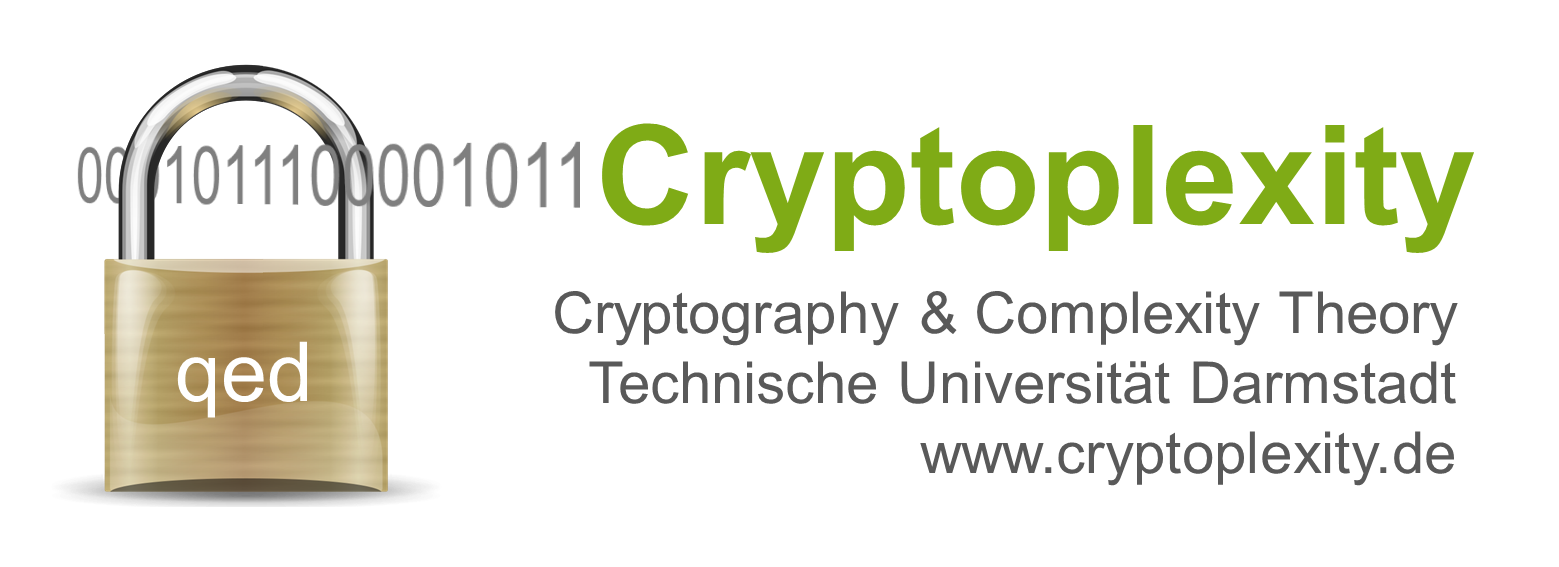In this document, we have collected the most important information for successfully completing your Bachelor or Master thesis within our group.
Prerequisites
For a Bachelor thesis, you should have at least successfully completed the Computer System Security course, and for most of our topics, Introduction to Cryptography is highly recommended as well. For a Master thesis, you should have at least completed Introduction to Cryptography and ideally also one of the advanced courses offered by our group (e.g., Cryptoplexity or Real World Crypto) or any other advanced cryptography course.
Starting and Choosing a Topic
If you consider writing a Bachelor or Master thesis with our group, please send us an email (thesis@cx.tu-…) in which you outline:
- The cryptography and/or IT security courses you have successfully attended
- Any additional skills that might be relevant (e.g., your aptitude for math, knowledge of programming or formal verification languages, …)
- Your interests concerning cryptography (which may be just a general area you find interesting, your favorite cryptographic primitive or protocol, or even a more or less concrete topic)
Finally, please attach your current transcript of records (Leistungsspiegel) to your email. This helps us better understand what background knowledge you have and which disciplines you are most comfortable with.
Note: Most of our topics are theoretical in nature and rarely require any hands-on programming. To get a feeling for the topics offered by our group please have a look at the list of completed theses. Please also check out the topics available at other groups. Make sure you choose a topic you are comfortable with. You will be working on this topic for several months!
The topic of your Bachelor or Master thesis will be defined jointly by you and your supervisor in one of your first meetings.
Researching
In the first part, you will be busy reading into your topic. We will provide you with a reference to one or a few papers, but you will probably also need other resources to get into the topic. These might be textbooks (try the ULB), other papers referenced in the papers we gave you, or other related work. Most papers in the area of cryptography can be found free of charge online. For instance, https://dblp.org provides a good search engine for papers in computer science. (Hint: dblp also prepares citations in various formats, e.g., BibTeX.) If a paper is not available for free, you can probably still access it if you are connected to the TU network. If you have trouble finding or accessing a paper, feel free to contact us.
In the next step, you will work more concretely on your research question. This may consist of developing and proving new ideas, analyzing existing research, or writing code (in the case of a more practical task).
During the whole process, we prefer to have regular (e.g., biweekly) meetings with you, where we discuss the status of your current work and problems that may have arisen.
Writing
Writing will be a major part of your thesis and something you should not underestimate, both in terms of necessary skills as well as the required time. Determine in advance if you prefer to write towards the end and reserve enough time upfront, or if you want to write as you move along, such as definitions and summaries of results encountered in other papers.
Remember that you are the author of the final thesis. We are willing to give you feedback on the structure and content of drafts you send us, but please do not expect us to correct grammar or spelling mistakes. We might also need some time to read your draft, so do not anticipate instantaneous feedback within a day or even a few hours. (If you send us a draft the evening before a meeting, chances are low we already found the time to read it).
Thesis
At the end of the day, you are expected to hand in a thesis that describes your results in a scientific way. You can use the style of the papers you read as a reference (e.g., in terms of writing style and citation style). The thesis should be self-explanatory for someone with medium knowledge in this area, but it should also be concise – 20-30 pages is a good length. (This may vary depending on the type of thesis, though. A literature survey can easily get longer.) Make sure to introduce all definitions you use and cite all publications you use.
We prefer English over German language for theses, especially since we are an international research group. The choice of the document preparation system (LaTeX, Word,…) is up to you, but remember that you eventually need to submit your theses in PDF/A. Besides the required formalities like the declaration of independently performed work, you may choose your preferred layout for the thesis. There are templates available.
Final Presentation and Grading
Your grade depends on your thesis, your results, and the progress. For Computer Science students there is usually a mandatory final presentation, counting 15 % towards your overall grade. The presentation is typically scheduled to be held soon after you have submitted your theses, and consists of 30 min presentation and 15 min discussions.


